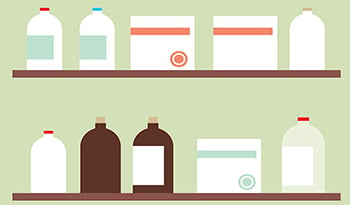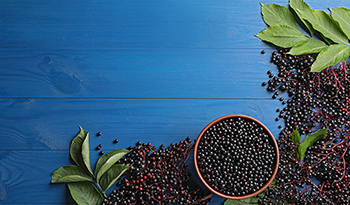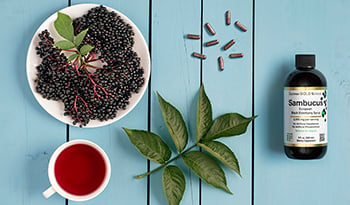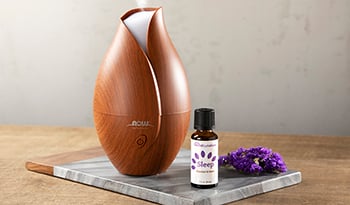Низька імунна функція

Що таке низька імунна функція?
Низька імунна функція означає недостатню активність і погану роботу імунної системи. Основна функція імунної системи - захищати організм від інфекцій та розвитку раку. Підтримка та зміцнення імунної системи є чи не найважливішим кроком у досягненні стійкості до хвороб і зниженні сприйнятливості до застуди, грипу та раку. Підтримка імунної системи включає в себе здоровий спосіб життя, управління стресом, фізичні вправи, дієту і правильне використання харчових добавок і рослинних препаратів.
Якщо ви відповіли "так" на будь-яке з наступних запитань, це ознака того, що ваша імунна система потребує підтримки:
- Ви легко застуджуєтеся?
- Ви застуджуєтеся більше двох разів на рік?
- Ви страждаєте від хронічної інфекції?
- У вас часті застуди або генітальний герпес?
- Ваші лімфатичні залози часом болять і набрякають?
- Чи хворієте ви зараз або хворіли коли-небудь на рак?
Рецидивуючі або хронічні інфекції - навіть дуже легкі застуди - виникають лише тоді, коли імунна система ослаблена. За таких обставин виникає повторюваний цикл, який ускладнює подолання схильності до інфікування: ослаблена імунна система призводить до інфікування, інфекція спричиняє пошкодження імунної системи, що ще більше послаблює резистентність. Зміцнення імунної системи може дати відповідь на питання, як розірвати це замкнене коло.
Що спричиняє низьку імунну функцію?
На здоров'я імунної системи значною мірою впливають емоційний стан людини, рівень стресу, спосіб життя, харчові звички та стан харчування. Дефіцит поживних речовин - найчастіша причина пригнічення імунної системи. Переважна кількість клінічних та експериментальних досліджень вказує на те, що дефіцит будь-якої однієї поживної речовини може глибоко порушити імунну систему.
Які дієтичні фактори є важливими при зниженні імунної функції?
Оптимальна імунна функція вимагає здорового харчування, яке (1) багате на цільні, натуральні продукти, такі як фрукти, овочі, цільні зерна, боби, насіння і горіхи, (2) з низьким вмістом жирів і рафінованого цукру, і (3) містить достатню, але не надмірну кількість білка. Крім того, для оптимальної роботи імунної системи необхідно випивати п'ять-шість 8-унційних склянок води на день (бажано чистої); приймати полівітамінно-мінеральні добавки високої ефективності; займатися регулярними фізичними вправами, що включають щонайменше 30 хвилин аеробних вправ і 5-10 хвилин пасивної розтяжки щодня; щодня виконувати вправи на глибоке дихання і розслаблення; щодня знаходити час для ігор і спілкування з сім'єю та друзями; а також спати щонайменше 6-8 годин на добу.
Одним з найбільш шкідливих компонентів їжі для нашої імунної системи є цукор. В одному дослідженні було показано, що вживання 100-грамових (приблизно 3-1/2 унції) порцій вуглеводів, таких як глюкоза, фруктоза, сахароза, мед і пастеризований апельсиновий сік, значно знижувало здатність білих кров'яних тілець (нейтрофілів) поглинати і знищувати бактерії. На відміну від цього, вживання 100 грамів крохмалю не мало жодного ефекту. Ці ефекти починалися менш ніж через 30 хвилин після прийому і тривали понад 5 годин. Як правило, через дві години після прийому спостерігалося зниження активності нейтрофілів щонайменше на 50%. Оскільки нейтрофіли складають 60-70% від загальної кількості циркулюючих лейкоцитів, порушення їх активності призводить до пригнічення імунітету.
Одними з найважливіших харчових компонентів, що підвищують імунну функцію, є каротини. Багато з імуностимулюючих ефектів каротинів, як і інших антиоксидантів, пояснюються їхньою здатністю захищати вилочкову залозу від пошкоджень. Тимус - головна залоза нашої імунної системи. Вона складається з двох м'яких рожево-сірих часток, що лежать у формі нагрудника трохи нижче щитовидної залози і над серцем. Вилочкова залоза демонструє максимальний розвиток відразу після народження. У процесі старіння вилочкова залоза зазнає процесу зменшення або інволюції. Причиною такої інволюції є те, що вилочкова залоза надзвичайно чутлива до дії вільних радикалів та окислювального пошкодження, спричиненого стресом, ліками, радіацією, інфекціями та хронічними захворюваннями. Коли вилочкова залоза пошкоджується, її здатність контролювати імунну систему серйозно порушується.
Тимус відповідає за багато функцій імунної системи, в тому числі за вироблення Т-лімфоцитів, типу білих кров'яних клітин. Вилочкова залоза також виділяє кілька гормонів, таких як тимозин, тимопоетин і сироватковий тимічний фактор, які регулюють багато імунних функцій. Низький рівень цих гормонів у крові пов'язаний зі зниженням імунітету та підвищеною сприйнятливістю до інфекцій. Зазвичай рівень гормону вилочкової залози дуже низький у літніх людей, людей, схильних до інфекцій, хворих на рак та СНІД, а також коли людина піддається надмірному стресу. Каротини та інші антиоксиданти можуть забезпечити оптимальну активність вилочкової залози, запобігаючи пошкодженню тимуса вільними радикалами та прооксидантами.
Окрім захисту вилочкової залози, каротини посилюють функцію декількох типів білих кров'яних тілець, а також підвищують противірусні та протиракові властивості наших власних медіаторів імунної системи, таких як інтерферон. Простіше кажучи, продукти та напої, багаті на каротин, здатні підвищити імунітет.
Продукти з високим вмістом каротину включають кольорові овочі, такі як темна зелень, жовті та помаранчеві патисони, морква, батат і солодка картопля, а також червоний перець і помідори. Також важливим для правильного функціонування імунітету, в тому числі для захисту від раку, є включення в раціон овочів родини капустяних (броколі, брюссельської капусти, капусти, цвітної капусти, листової капусти, капусти, зелені гірчиці, редьки і ріпи), ягід, багатих на флавоноїди, часнику і топінамбура.
Йогурт має здатність підвищувати імунну функцію, особливо якщо він виготовлений з великою кількістю (мільярди на порцію) Bifidobacterium lactis. Споживання йогурту з Bifidobacterium lactis збільшує кількість загальних, хелперних та активованих Т-лімфоцитів і природних кілерів. Інші ефекти включають підвищення здатності імунних клітин фагоцитувати або поглинати і знищувати загарбників, а також здатність природних клітин-кілерів вбивати пухлинні клітини.
Які харчові добавки слід приймати при зниженій імунній функції?
Є три продукти, які, на мою думку, мають вирішальне значення для підтримки хорошої імунної функції:
- Високоефективна комплексна вітамінно-мінеральна формула
- Вітамін D3: 2 000-5 000 МО/день
- Риб'ячий жир: від 1 000 до 3 000 мг ЕПК+ДГК/день.
Високоефективна мультивітамінно-мінеральна формула є першим кроком у підтримці імунної системи за допомогою харчових добавок, оскільки вона усуває будь-який основний дефіцит поживних речовин. Дефіцит практично будь-якої поживної речовини може призвести до значного погіршення імунної функції, особливо дефіцит вітамінів С, Е, А, В6, В12 і фолієвої кислоти. Особливо важливими мінералами є цинк, залізо та селен. На додачу до множини, деякі специфічні поживні речовини корисні для підвищення імунної функції: вітамін С, вітамін Е і вітамін А.
Вітамін D3 особливо важливий для здоров'я імунної системи. Люди, у яких рівень вітаміну D в крові нижче 38 нг/мл, мали вдвічі більше інфекцій верхніх дихальних шляхів, ніж ті, у кого рівень вітаміну D був вищим. Клінічні дослідження підтвердили здатність вітаміну D знижувати ризик застуди та грипу. Для забезпечення оптимального статусу вітаміну D останнім часом більшість експертів у галузі охорони здоров'я виступають за щоденні дози від 2 000 до 5 000 МО.
Ехінацея виявила значний вплив на імунну функцію в більш ніж 300 наукових дослідженнях, не всі з яких були позитивними. Неоднозначні результати клінічних досліджень ехінацеї, найімовірніше, пов'язані з відсутністю або недостатньою кількістю активних сполук. Ехінамід® - це запатентований, клінічно доведений продукт, який гарантує високий рівень трьох ключових активних груп сполук, що відповідають за дію ехінацеї на імунну систему. Дотримуйтеся інструкцій на етикетці.
Корінь астрагалу (Astragalus membranaceus) - традиційна китайська лікарська рослина, що використовується для лікування вірусних інфекцій, включаючи застуду. Клінічні дослідження, проведені в Китаї, показали, що він є ефективним засобом профілактики застуди. Також було доведено, що він зменшує тривалість і тяжкість симптомів при гострому лікуванні застуди, а також підвищує рівень лейкоцитів при хронічній лейкопенії (стан, що характеризується низьким рівнем білих кров'яних тілець). Дослідження, проведені на тваринах, виявили, що дія астрагалу, як видається, базується на стимулюванні кількох різних чинників імунної системи. У нього, зокрема, було помічено здатність стимулювати поглинання та знищення чужих організмів та клітинного сміття білими кров'яними тільцями, а також позитивно впливати на утворення інтерферону, ключової натуральної сполуки, яку організм виробляє, щоб боротися з вірусами. Дотримуйтеся інструкцій на етикетці.
ПРИМІТКА: Астрагал є одним з основних компонентів продукту Anti-V від Natural Factors. Інші компоненти цієї формули включають: Echinamide®; ломатій (Lomatium dissectum); рейші (Ganoderma lucidum); і солодка (Glycyrrhiza glabra). Дотримуйтеся інструкцій на етикетці.
Wellmune - це спеціальний препарат бета-глюкану з пекарських дріжджів, який у кількох подвійних сліпих дослідженнях довів свою ефективність у підвищенні імунітету для профілактики застуди та грипу. Суб'єкти отримували щодня 500 мг Wellmune або плацебо протягом 90 днів. Про результати одного з таких досліджень повідомила група Wellmune:
- Жодного пропуску роботи або навчання через застуду, порівняно з 1,38 днями пропуску роботи/навчання в групі плацебо.
- Жодного випадку лихоманки, порівняно з 3,50 випадків у групі плацебо.
- Підвищення якості життя, включаючи фізичну енергію та емоційне благополуччя, що вимірюється за допомогою клінічно підтвердженого опитувальника для обстеження стану здоров'я.
Лікарські гриби , такі як майтаке, шитаке, рейші та кордицепс, мають значний імуностимулюючий ефект. Значною мірою ця активність також зумовлена наявністю бета-глюканів. Численні експериментальні та клінічні дослідження показали, що грибні бета-глюкани активують лейкоцити. Дотримуйтеся інструкцій на етикетці.
Пробіотики - це корисні для здоров'я бактеріальні продукти, що містять такі види, як лактобактерії та біфідобактерії. Ці препарати можуть бути цінними помічниками у підвищенні імунітету. Щодня приймайте від 6 до 12 мільярдів живих колонієутворюючих одиниць (КУО).
Прокоментуйте:
Наш настрій і ставлення мають величезний вплив на роботу імунної системи. Суть в тому, що коли ми щасливі та оптимістичні, наша імунна система функціонує набагато краще. І навпаки, коли ми в депресії, наша імунна система має тенденцію до пригнічення. Коли людина перебуває у стані стресу або депресії, їй потрібно докласти свідомих зусиль для зміцнення імунної системи - це включає в себе прийом біологічно активних добавок. Не лише серйозні життєві стреси можуть спричинити пригнічення імунної функції, але чим значніший стрес, тим сильніший його вплив на імунну систему. Негативні емоції пригнічують імунну функцію, тоді як позитивні емоції посилюють імунну функцію. У своїй клінічній практиці, коли пацієнт страждає від низької імунної функції, я запитую його, хто його улюблений комік, а потім виписую йому рецепт на перегляд фільму або телепередачі за участю цього коміка. Суть в тому, що якщо ви хочете мати здорову імунну систему, вам потрібно часто сміятися.
Як дізнатися, чи працюють рекомендації?
Менше застуд та інших вірусних інфекцій, коротші періоди інфекцій та краща загальна стійкість до інфекцій.
ВІДМОВА ВІД ВІДПОВІДАЛЬНОСТІ:Інформація, що міститься в Центрі здоров'я, не призначена для встановлення діагнозу...






























































































